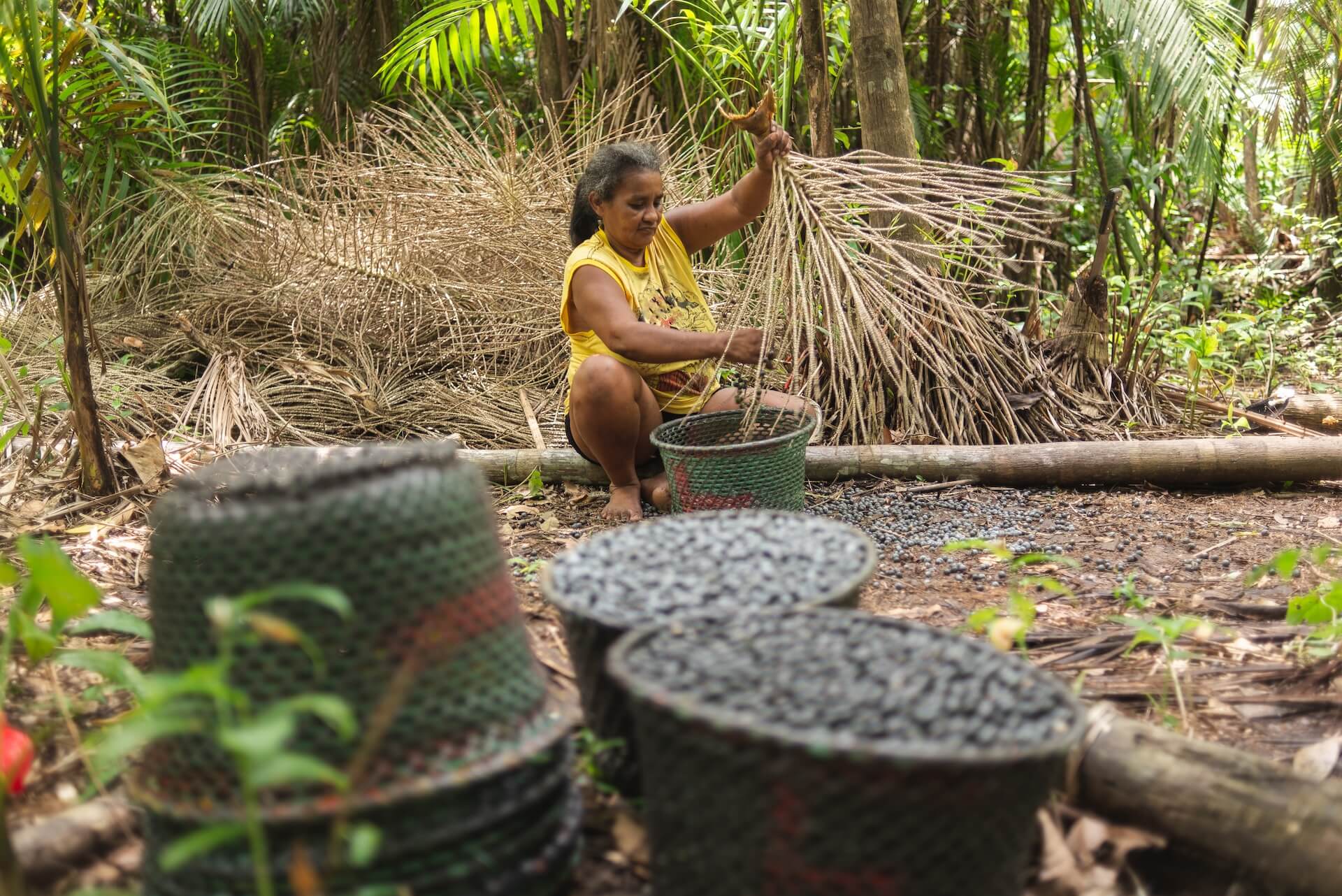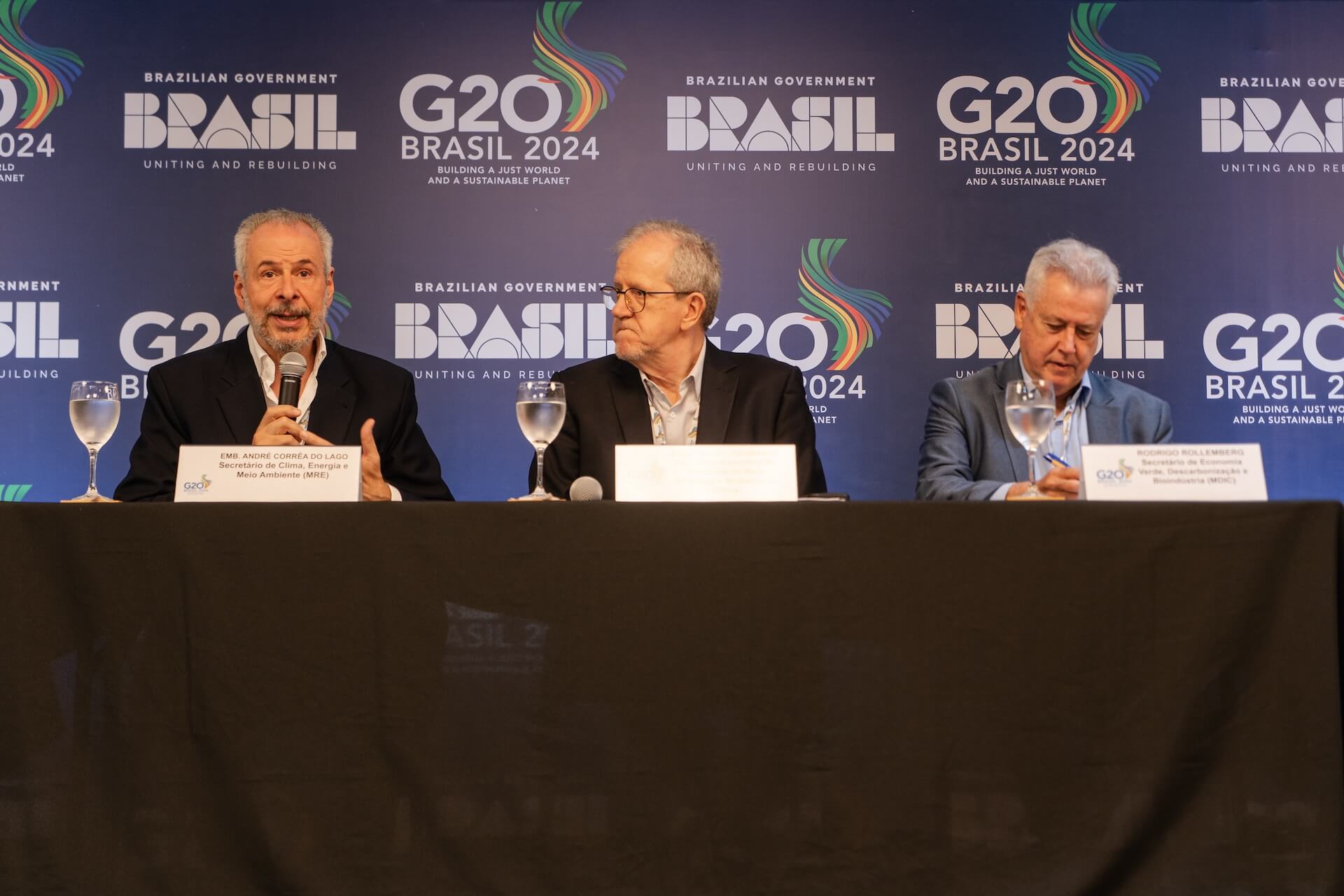G20 discusses bioeconomy as key to reducing inequalities and poverty
Brasil's proposal to explore biodiversity to boost the economy and fight poverty gains support at the G20 as key to promoting climate and food security. Traditional communities and peoples’ perspectives are also integrated into discussions by the world's largest economies.

The Brazilian presidency has advanced in the elaboration of high-level principles on bioeconomy alongside other G20 member countries. The proposal to boost the economic exploitation of biodiversity to reduce poverty and inequalities gained support among the international representatives who met this week in Manaus, capital of the Brazilian state of Amazonas.
"Bioeconomy is precisely the connection between our enormous natural power and the people who depend on this environment to develop and create jobs. How are we to move towards an economy in which the forest generates concrete results for Amazonian society, for example? This debate is very important at the G20, as it allows us to improve concepts and include it in the international debate in way that is a more consistent and agreed upon by other countries," highlighted Ambassador André Corrêa do Lago, Secretary for Climate, Energy and the Environment at the Brazilian Ministry of Foreign Affairs (Ministério das Relações Exteriores).
João Paulo Capobianco, Executive Secretary of Brazil’s Ministry of the Environment and Climate Change (Ministério do Meio Ambiente e Mudança do Clima/MMA), stressed that the G20 consensus on the principles for bioeconomy will be valuable for negotiations concerning the environment, sustainability and tackling the climate crisis in coming years, especially at COP30 (the United Nations Framework Convention on Climate Change), to be held in Brasil in 2025. "We are very excited and optimistic about this work. Our team is very mobilized in this joint effort," said Capobianco.
In addition to Brasil, with its many traditional peoples and communities, Australia and Canada made important contributions on ensuring that the perspectives of these groups are included in the principles that are being developed by the G20—recognizing traditional knowledge and how it should be considered as science, overcoming the notion of developed countries’ superiority.
The strategic role of bioeconomy for food and climate security and the global energy transition was also highlighted by Rodrigo Rollemberg, Secretary for Green Economy, Decarbonization and Bioindustry at the Ministry of Development, Industry and Trade (Ministério de Desenvolvimento Indústria e Comércio/MDIC), who pointed out that Brasil's domestic experience guides G20 priorities on the subject.
"Bioeconomy is a fundamental instrument for diversifying food for the whole world, for producing bio-inputs for more soil and water-friendly agriculture, and for producing biomass in biofuels, high value-added bio-manufactures and extremely important for climate security. This brings to mind a new form of cooperation between the countries, breaking down barriers and preconceptions against Brazilian biofuels, for instance," added Rollemberg.

Traditional communities' perspectives
In addition to Brasil, with its many traditional peoples and communities, Australia and Canada made important contributions on ensuring that the perspectives of these groups are included in the principles that are being developed by the G20—recognizing traditional knowledge and how it should be considered as science, overcoming the notion of developed countries’ superiority.
“It has been extremely interesting, also in yesterday's discussion, to see how countries are now giving their original peoples so much more importance—something they didn’t do before," Corrêa do Lago said.
Capobianco observed that the Brazilian government has been listening to traditional peoples and communities, especially indigenous peoples, on key issues for the environmental preservation and ecological transition that are underway in Brazil—issues that are all being discussed with G20 member countries. “The Brazilian strategy and positioning go way beyond the G20—this is a space for discussion. The effort is national. Movements are involved both in defining and creating strategies from our vast regions that will surprise the world," he said.